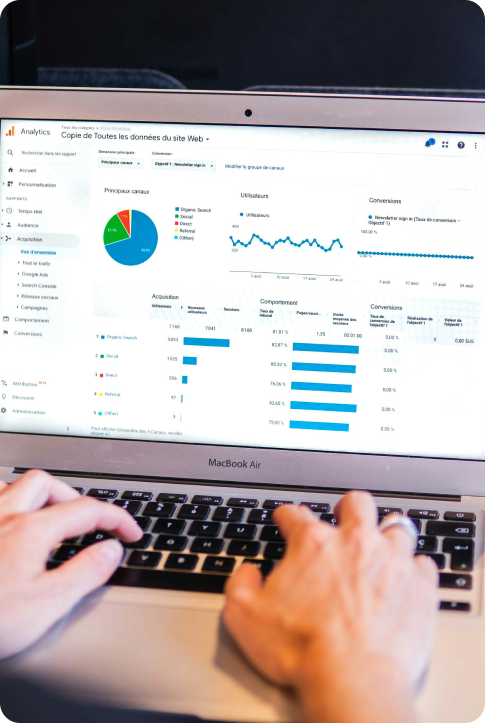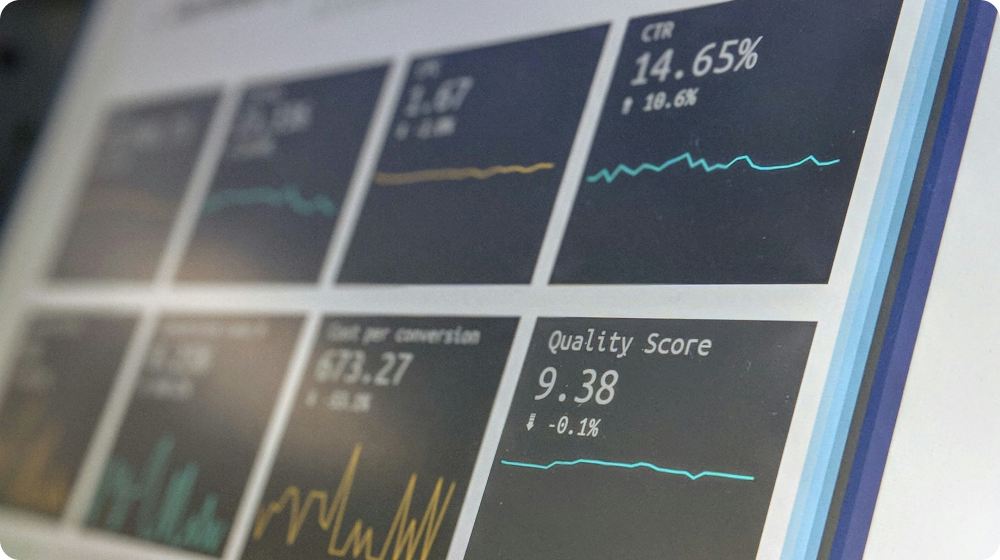
In today's rapidly evolving digital landscape, one question that consistently surfaces among businesses big and small is "how much does digital marketing cost?" Understanding the investment required for effective online marketing is critical in setting realistic expectations and achieving measurable results. With digital marketing agency costs varying widely based on services, goals, and the level of expertise, pinpointing a one-size-fits-all figure can be challenging. However, getting a clear picture of these costs is essential for companies looking to make informed decisions and strategically allocate their marketing budgets.
This article aims to demystify the expenses associated with digital marketing by breaking down average costs for various digital marketing services, offering insight into budgeting for key marketing channels, and highlighting the value of investing in digital strategies. Additionally, we will provide practical tips for managing your digital marketing budget in 2024, ensuring that businesses of all sizes can navigate the complexities of digital marketing investments with confidence. Whether you are considering partnering with a digital marketing agency or looking to optimise in-house resources, this guide will serve as an invaluable resource for planning your marketing expenditures wisely and maximising the return on your investment.
When it comes to the average costs for digital marketing services in Australia , businesses can expect to encounter various pricing models, including hourly rates, monthly retainers, and project-based fees. Understanding these different pricing structures is crucial for effectively budgeting and allocating resources to your digital marketing efforts.

Many digital marketing agencies in Australia charge hourly rates for their services. These rates can vary depending on the agency's experience, reputation, and the complexity of the tasks involved. On average, businesses can expect to pay between AUD$130 and $360 per hour for digital marketing services. Junior staff members and simpler tasks may be charged at the lower end of this range, while senior staff with greater expertise and involvement in strategic activities may command higher hourly rates.
Another common pricing model used by digital marketing agencies is the monthly retainer. This approach involves paying a fixed monthly fee for a predetermined set of services. Monthly retainers can range from $5,000 to $14,300, depending on the scope of the services provided and the size of your business. This pricing model is suitable for businesses that require ongoing support and management of their digital marketing campaigns.
For businesses with specific goals or campaigns, project-based fees may be a more suitable option. In this pricing model, the agency provides a quote for a particular project, and once agreed upon, they work on the project until completion. Project-based fees can range from $6,400 to $10,000, depending on the complexity and duration of the project. It's important to note that these are average costs, and the actual pricing may vary based on factors such as the agency's reputation, the size of your business, and the specific services required. When evaluating digital marketing costs, it's essential to consider the value and potential return on investment (ROI) that the agency can provide, rather than solely focusing on the lowest price point.
By understanding the average costs associated with hourly rates, monthly retainers, and project-based fees, businesses can make informed decisions about their digital marketing budget and select the pricing model that best aligns with their goals and resources.
When allocating your digital marketing budget, it's essential to consider the key channels that align with your business goals and target audience. Three primary areas to focus on are SEO,social media, and paid advertising.


Search engine optimisation (SEO) is a crucial component of any digital marketing strategy. Investing in SEO helps improve your website's visibility in search engine results pages (SERPs), driving organic traffic and generating leads. According to recent data, businesses typically allocate between 10-50% of their digital marketing budget to SEO efforts, depending on their industry and goals.
To maximise your SEO budget, consider the following:
Social media platforms offer a powerful way to connect with your target audience, build brand awareness, and drive engagement. On average, businesses allocate 20-40% of their digital marketing budget to social media marketing.
When budgeting for social media, consider:


Paid advertising, such as pay-per-click (PPC) and display ads, can quickly boost your online visibility and drive targeted traffic to your website. Businesses typically allocate 30-50% of their digital marketing budget to paid advertising efforts.
When allocating budget for paid advertising, consider:
Ultimately, the allocation of your digital marketing budget across these key channels will depend on your specific business needs, target audience, and marketing goals. Regularly monitoring and adjusting your budget based on performance and ROI will help ensure you're making the most of your digital marketing investments.
While it may be tempting to view digital marketing as a mere expense, savvy businesses recognise it as a valuable investment that yields significant returns. By allocating resources to strategic digital marketing efforts, companies can unlock a wealth of benefits that contribute to long-term growth and success.

One of the most compelling reasons to invest in digital marketing is the potential for a high return on investment (ROI). Unlike traditional marketing methods, digital marketing allows for precise targeting, real-time performance tracking, and data-driven optimization. This means that businesses can allocate their marketing budget more efficiently, focusing on the channels and strategies that deliver the best results.
By leveraging tools like Google Analytics, businesses can monitor key metrics such as website traffic, conversion rates, and customer acquisition costs. This data-driven approach enables marketers to make informed decisions, adjust their strategies, and maximize the ROI of their digital marketing investments.
Investing in digital marketing not only yields short-term gains but also lays the foundation for long-term success. By building a strong online presence, businesses can establish brand credibility, attract new customers, and foster loyalty among existing ones.
Strategies like search engine optimization (SEO) and content marketing have a compounding effect over time. As businesses consistently create valuable content and optimize their websites for search engines, they improve their organic search rankings and attract more qualified traffic. This ongoing investment in digital marketing assets continues to pay dividends long after the initial effort, driving sustainable growth and competitive advantage.
Moreover, investing in digital marketing allows businesses to adapt to the ever-changing digital landscape. By staying ahead of trends, embracing new technologies, and continuously refining their strategies, companies can maintain their edge and capitalize on emerging opportunities.
In today's digital age, investing in digital marketing is no longer optional—it is a strategic necessity. By viewing digital marketing as an investment rather than an expense, businesses can unlock the full potential of their online presence, drive measurable results, and achieve long-term success in an increasingly competitive marketplace.
As businesses prepare their digital marketing strategies for 2024, effectively managing budgets is crucial to ensure maximum ROI and achieve marketing goals. Here are some tips to help you manage your digital marketing budget in the coming year:

Before allocating your budget, define your marketing objectives and prioritise the channels and tactics that align with these goals. This will help you focus your spending on the most impactful areas.
Analyse your previous year's marketing performance to identify areas of success and improvement. Use this data to inform your budget decisions and optimise your spending.
While it's essential to have a well-defined budget, leave room for flexibility to adapt to changing market conditions or emerging opportunities. Consider setting aside a portion of your budget for experimentation and testing new strategies.
Marketing automation tools can help streamline processes, improve efficiency, and reduce costs. Allocate a portion of your budget to invest in these tools, which can ultimately lead to better results and cost savings.
Align your marketing budget with the goals and initiatives of other departments, such as sales and customer service. This collaboration can lead to more effective campaigns and a better overall customer experience.
To ensure your budget stays on track, it's crucial to monitor and track your expenditures regularly. Implement a system to record and categorize all marketing expenses, including:
By closely tracking your expenditures, you can quickly identify any overspending or areas where budget adjustments may be necessary.
Throughout the year, regularly review your marketing performance and budget utilisation. If certain channels or tactics are not delivering the desired results, don't hesitate to reallocate funds to more promising areas. Be prepared to adjust your strategies and budget as needed based on:
By remaining agile and adaptable, you can optimise your digital marketing budget and ensure that your resources are being used effectively to achieve your goals.
Remember, managing your digital marketing budget is an ongoing process that requires regular monitoring, analysis, and adjustment. By following these tips and staying proactive, you can maximize the impact of your marketing investments in 2024 and beyond.
Navigating the complexities of digital marketing costs requires insight and strategic planning to ensure that investments yield the desired outcomes. Through understanding the average costs involved with various digital marketing services, businesses are better equipped to allocate their budgets effectively, optimizing for channels that promise the greatest return on investment. Moreover, considering the value that digital marketing brings in terms of long-term growth and adaptability in a fast-paced digital age underscores its importance as not just an expenditure, but a vital investment into the future of any business.
To solidify a digital marketing strategy that is both cost-effective and results-driven, it is essential to weigh the options with expertise. For those looking to refine their approach and understand more about digital marketing fees, booking a free strategy session today with Sun can provide valuable insights and guidance. By fostering an informed perspective on cost management and strategic investment in digital marketing, businesses can harness the full potential of their online presence, driving growth and success in an increasingly competitive landscape.
What percentage of company revenue is typically allocated to digital marketing? Businesses generally allocate about 9.1% of their company revenue to marketing, as recommended in Gartner's Guide to Crafting a Marketing Budget.
What are the average costs associated with different digital marketing strategies? Digital marketing costs can vary widely depending on the strategy:
What does cost budgeting in digital marketing include? Cost budgeting in digital marketing typically includes media costs, creative production, agency fees, and the use of digital tools and technology necessary for executing a campaign or strategy. It may also cover staff costs, training, and processes, although this is not always the case.
What is the cost of social media advertising in 2024? In 2024, social media advertising costs range from $650 to $2,500 per month or more, based on the specific goals, needs, and budget of the business. Pricing strategies like those from LYFE Marketing are designed to deliver results efficiently and cost-effectively for small business owners.

With 23 years of experience in marketing for small businesses, medium enterprises, and national brands, Nicole brings a wealth of hands-on expertise. Her portfolio includes work with prominent brands such as Optical Superstore, Nutrition Warehouse, and Raine and Horne, as well as small to medium-sized businesses like Qld Bathroom Renovations and Gourmet Meals, where she has dedicated 8 years of service.
VIEW PROFILE